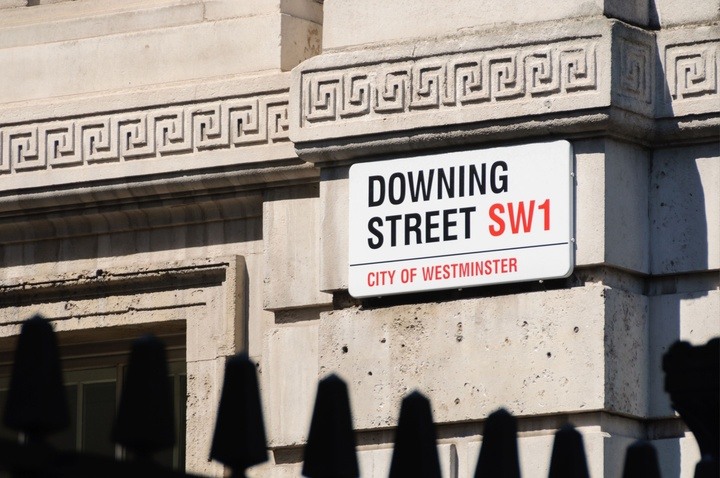Weekly Briefing: UK interest rate cuts “in play”, investors welcome reversal of VC rule & BoJ ends era of negative interest rates
In this week’s briefing, we discuss Bank of England (BoE) Governor Andrew Bailey’s recent comments that future interest rate cuts are “in play”, the reversal of the recently introduced investor threshold changes and what led to it, and more.
UK Economy
Interest Rate Cuts Are "In Play"
- In an interview with the Financial Times, BoE Governor Andrew Bailey said that interest rate cuts are “in play” at future Monetary Policy Committee (MPC) meetings.
- The MPC met last week and decided to keep rates at 5.25% once again.
- Bailey also signalled that markets are right to expect more than one rate cut this year, as he reiterated his confidence that inflation is heading towards the 2% target.
- The Governor said: “It’s like the Sherlock Holmes dog that doesn’t bark. If the second-round effects don’t come through, that’s good because monetary policy has done its job. We have an increasingly positive story to tell on that. The global shocks are unwinding and we are not seeing a lot of sticky persistence [in inflation] coming through at the moment. That is the judgement we have to keep coming back to.”
- Stating that he did not need inflation to fall to 2% before cutting interest rates, Bailey suggested he – and the other MPC members – just need to see that it’s on its way.
Global Economy
Bank Of Japan Ends Era Of Negative Interest Rates
- The Bank of Japan (BoJ) has raised the cost of borrowing for the first time in 17 years, leaving negative territory.
- Following a 7-2 majority vote, the BoJ increased its interest rate from -0.1% to a range of 0% to 0.1%.
- The Bank turned to negative interest rates in 2016 in an attempt to stimulate the country’s stagnating economy and it is now the last central Bank to end the use of negative rates as a monetary policy tool.
- Nobuko Kobayashi from consulting firm EY-Parthenon told the BBC that the BoJ’s decision to finally raise interest rates hinged on the country’s major corporations increasing wages for workers, in order to help them cope with the rising cost of living.
- Earlier in March, Japan’s largest companies agreed to raise salaries by 5.28%, the largest wage increase in over three decades.
Investing
Government U-Turn On Venture Capital Rule Changes Welcome
- Changes to the financial promotion exemptions under the Financial Services and Markets Act 2000 (Financial Promotion) Order 2005, which saw an increase to financial thresholds, were introduced in January 2024.
- The changes meant that to qualify for high-net-worth investor (HNWI) exemption, an investor would need an annual income of at least £170,000 or net assets of at least £430,000, excluding equity in the home or pensions.
- However, it was announced in the Spring Budget that these changes would be reversed after pushback from the angel investor community.
- It was believed that the changes did not take into account the gender or ethnicity pay gap, or the variations in pay across different parts of the UK.
- Concerns were raised around the new rules capturing a much smaller pool of angel investors and ultimately leading to less funding available for early-stage startups.
- The changes also excluded around 70% of women from qualification, leading to the formation of a campaign for change named InvestHER, which secured more than 2,800 signatures calling for the reversal of the thresholds.
- The Chancellor announced the reversal in his Spring Budget, with the previous thresholds to qualify as a HNWI – which are an annual income of at least £100,000 or assets of £250,000 throughout the last financial year, excluding equity in the home or pensions – to be reinstated alongside the previous eligibility criteria for sophisticated investors.
- The reversal has been almost universally welcomed, with particular emphasis placed on the fact it will help to avoid a further decline in women investing into startups.
- In 2023, only 244 active female angel investors were reported, down from a high of 422 in 2021.
Property
Property Sales Up 18% In February According To Estate Agency
- London estate agency Chestertons report that they have seen an 18% increase in property sales compared to January.
- They believe the prospect of further increases to mortgage rates are prompting prospective buyers to take action.
- The average five-year fixed-term mortgage rate is now 5.47%, marking a 0.07% increase since the beginning of March.
- However, recent data has found that mortgage rates are considerably better than in 2023, as multiple lenders have dropped rates in response to falling inflation.
A Final Note
We've seen a number of positive updates from the economic and investment spaces over the last week, with the increasing potential of interest rate cuts being posed as an encouraging indicator of inflationary forecasts by Andrew Bailey.
What's more, there can be significant positives taken from the reversal of changes to financial promotion exemptions, both for HNWIs and the VC ecosystem as a whole.
Allowing for a greater pool of available funding for early-stage startups, this poses British VC as an increasingly attractive asset class for UK-based HNWIs, especially when paired with the generous tax reliefs offered by the Enterprise Investment Scheme (EIS) and Seed Enterprise Investment Scheme (SEIS).
At GCV, we remain committed to providing the latest insights into the investment and wider economic landscape in order to support investors in making well-informed decisions when choosing where to allocate their capital.
If you would like to find out more about a number of tax-efficient investment strategies available to UK investors, discover our range of downloadable resources here.
%20(3)%20(2).jpg)








